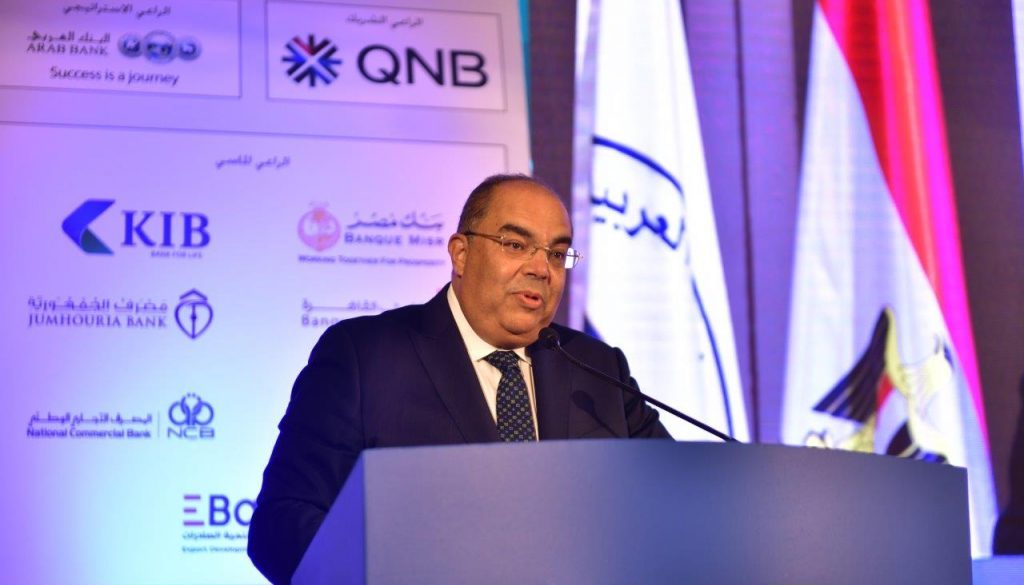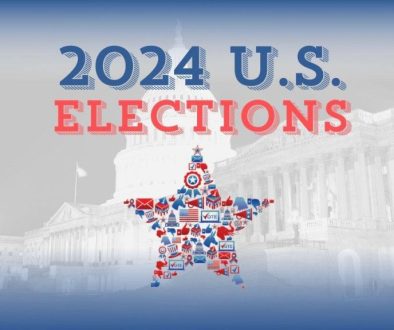Overview
Dr. Mohieldin, is an economist with more than 30 years of experience in international finance and development. He is an Executive Director at the International Monetary Fund. He has been United Nations Special Envoy on Financing the 2030 Development Agenda since February 2020. He was the former Minister of Investment of Egypt from 2004-2010, and most recently, served as the World Bank Group Senior Vice President for the 2030 Development Agenda, United Nations Relations and Partnerships. His roles at the World Bank also included Managing Director, responsible for Human Development, Sustainable Development, Poverty Reduction and Economic Management, Finance and Private Sector Development, and the World Bank Institute; World Bank President’s Special Envoy on the Millennium Development Goals (MDGs), the Post-2015 Development Agenda (later, the Sustainable Development Goals (SDGs)), and Financing for Development; and Corporate Secretary and Executive Secretary to the Development Committee of the World Bank Group’s Board of Governors. Mr. Mohieldin also served on several Boards of Directors in the Central Bank of Egypt and the corporate sector. He was a member of the Commission on Growth and Development and selected a Young Global Leader of the World Economic Forum in 2005. His professional experience extends into the academic arena as a Professor of Economics and Finance at the Faculty of Economics and Political Science, Cairo University and as a Visiting Professor at several renowned Universities in Egypt, Korea, the UAE, the UK and the USA. He is a member of the International Advisory Board of Durham University Business School. He also holds leading positions in national, regional and international research centers and economic associations.
Mr. Mohieldin holds a Ph.D. in Economics from the University of Warwick, United Kingdom; a Master’s in Economics and Social Policy Analysis from the University of York, United Kingdom; a Diploma of Development Economics from the University of Warwick; and a B.Sc. in Economics from Cairo University. He also participated in high-level certification programmes at Wharton Business School of the University of Pennsylvania and Georgetown University. In 2018, the American University in Cairo conferred upon him the honorary degree of doctor of Humane Letters “in recognition of renowned attainments and achievements”. He has authored numerous publications and articles in leading journals in the fields of economics, finance and development in English and Arabic.
A Story of Continues Achievements
Early Career
Dr. Mahmoud Mohieldin started his career as a lecturer in financial economics at the Faculty of Economics and Political Science of Cairo University. He then took on the position of director of the Macroeconomic and Debt Analysis Unit in the Office of the Minister of State for International Cooperation from 1995 until 1996. In 1996, he became an economic advisor in the Office of the Minister of State for Economic Affairs. In 1997, he became senior advisor to the Minister of Economy and in 1999, became senior advisor to the Minister of Economy and Foreign Trade. In 2001, he moved to the Ministry of Foreign Trade as a senior advisor to the minister. In 2004, he was appointed Minister of Investment.
Mohieldin also served as a member of the board of directors of the Central Bank of Egypt (1999–2004); member of the board of directors of HSBC-Egypt; member of the board of directors of Telecom Egypt; and member of the board of directors of the Egyptian Diplomatic Institute at the Ministry of Foreign Affairs of Egypt. Mohieldin was also an advisor to the Egyptian Centre for Economic Studies and the director of Cairo Economics and Finance.
Accomplishments at the Ministry of Investment
Mohieldin was appointed Minister of Investment upon its establishment in 2004. The ministry was established with a mandate to reform the investment climate in Egypt, further develop non-bank financial services, and introduce a comprehensive Asset Management Program to State-Owned Enterprises (SOEs). He led a comprehensive structural and regulatory reform program to modernize and liberalize the Egyptian economy in those three critical areas – leveraging private investment for growth and job creation; enhancing access to non-bank financial services; and implementing a successful asset management program of public enterprises.
Private investment: through his major legislative and institutional reforms, there was tangible impact on both domestic investments, as well as FDI inflows. Between 2004–05 and 2006–07, private sector investments grew at an average annual rate of 40% and FDI inflows increased from $2 billion in 2004 50 $13.2 billion in 2008. As a result of his leadership, Egypt was named Top Reformer for four years in the Doing Business Report and was top regional recipient of foreign direct investment.
Financial services and corporate governance: Mohieldin has established a global reputation for effective and strategic management and built an outstanding record of results including: creating an effective single regulator for the non-bank financial sector, the Egyptian Financial Supervisory Authority (EFSA); building a stock-market for small and medium-sized enterprises, the Nile Stock Exchange (NILEX); creating the first institute of directors in the Arab World; developing an environmental, social and governance index with Standard & Poor’s for companies listed on the Egyptian Exchange (S&P/EGX ESG Index); developing the first Arabic Code of Conduct for corporate governance and introducing guidelines for corporate social responsibility; consolidating and liberalizing the insurance sector and enhancing its regulatory framework; and developing the mortgage finance market and launching Egypt’s first liquidity facility for mortgage refinance. These regulatory reform measures helped allow the non-bank financial services industry to accommodate new products as well as position Egypt as the regional center for financial services at the time.
Asset Management Program: By adopting a comprehensive asset management program, the Ministry of Investment, under the leadership of Mohieldin, eliminated the £E32 million debt of State-Owned Enterprises, and brought it to zero; its net assets went from negative to positive. By 2007/08, the portfolio was generating profit of £E5.1 billion. The ministry also significantly enhanced corporate governance of SOEs.
International Triumphs – World Bank and IMF
Dr. Mohieldin joined the World Bank in October 2010 as Managing Director. As managing director, Mohieldin oversaw the networks responsible for human development, sustainable development, poverty reduction and economic management, finance and private sector development, the World Bank Institute, largely responsible for knowledge building and sharing, as well as improving cross network collaboration. Areas of work also included the Millennium Development Goals, cooperatives, Islamic finance, migration, public-private partnerships, financial inclusion, as well as guidance and support on the World Bank’s World Development Reports. Mohieldin also served as the World Bank deputy to the G20.
In January 2013, he became the president’s special envoy on the Millennium Development Goals, the Post-2015 Development Agenda, and Financing for Development. His primary responsibilities were to act as the focal point on discussions related to the post-2015 agenda (later, the sustainable development goals), to support the framing of the agenda, support acceleration of the MDGs, and improve coordination with the Multilateral Development Banks. A key initiative was the adoption of an MDG acceleration framework by the UN Chief Executives Board (CEB), which was rooted in enhanced collaboration between all agencies to address key bottlenecks in selected countries. His work also entailed strengthening the relationship between the World Bank and the United Nations.
In April 2014, in addition to his responsibilities as the president’s special envoy, he was appointed as corporate secretary and executive secretary to the development committee of the World Bank Group’s board of governors. As corporate secretary, Mohieldin’s role was to act as the key interlocutor between the management of the World Bank and the board of executive directors. During his tenure, he managed and ensured the success of several important decisions, including the 2015 shareholding review, the fast-track approval of loans related to Ebola, as well as the implementation of reforms.
In January 2016, he took on his current role of senior vice president for the 2030 development agenda, UN Relations and Partnerships. This includes overseeing the World Bank offices in New York and Geneva. His unit is responsible for representing the World Bank in discussions related to the Sustainable Development Goals and 2030 Agenda for Sustainable Development. It is also responsible for representing the World Bank at the United Nations. An important work stream is to ensure the effective alignment of the SDGs to the work of the World Bank. Mohieldin has also played a key role in strengthening the relationship between the UN system and the World Bank.
Latest Publications by Dr. Mahmoud Mohieldin
Would Closing the Gender Digital Divide Close the Economic Gender Gap in Emerging Markets and Developing Economies?
Authors: Dr. Mahmoud Mohieldin, Executive Director, International Monetary Fund and Dr. Racha Ramadan, Associate Professor, Faculty of Economics and Political Sciences, Cairo University
Abstract: COVID-19 crisis accelerated the use of information technology-based solutions, as e-learning and remote work became the new normal. Nevertheless, access to and use of technology are not gender neutral. In Emerging Markets and Developing Economies (EMDEs), women have less access to the internet and other technological tools than men. Limited access to technology may hinder women’s access to economic opportunities. Thus, the present paper investigates the impact of the digital gender divide on the gender gap in labor market participation, controlling for the gender gap in education, social norms and other macro-economic characteristics of EMDEs and developed countries. Using World Development Indicators, Global Findex database and World Value Surveys for 2017, a two-stage least squares approach was used to control for the endogeneity of the gender gap in access to internet. The results show that closing the gender gap in internet usage would reduce the gender gap in labor market participation. However, this positive effect is lower in the EMDEs than in advanced economies, shedding the light on the importance of traditional gender roles as key determinant of the gender gap in labor market participation in EMDEs. The present results have important implications for policies targeting women empowerment (SDG5) and reducing inequalities (SDG10). Digital solutions could help segments of women manage and balance familial obligations with paid work better.
Can Disaster Preparedness Change the Game? Mitigating the Health Impact of Disease Outbreaks
Authors: Dr. Mahmoud Mohieldin, Executive Director, International Monetary Fund and Dr. Amira El-Shal, Senior Policy Manager, J-PAL Middle East and North Africa and Dr. Eman Moustafa, Senior Consultant for the Macroeconomic Policy, Debt Sustainability and Forecasting Division of the African Development Bank
Abstract: In times of epidemics and pandemics, depletion or diversion of health system resources from routine health care is common, posing serious threats to primary care. This paper estimates the contemporaneous and long-run effects of health disasters on maternal and child mortality in 111 countries during 2000-2019 using two-way fixed-effects and two-step system general method of moments frameworks. We also provide evidence that indicates how health system, macroeconomic, institutional, and structural characteristics can mitigate disaster effects. In low- and middle-income countries, health disasters increase maternal, under-5, and neonatal mortalities by 0.3%, 0.3%, and 0.2% instantaneously and by 35%, 80%, and 26% after one year, respectively. Our estimates show that disaster preparedness can prevent these effects. However, other mitigators, namely health emergency finance, universal health coverage, education, gender equality, and water, sanitation, and hygiene coverage, have greater impact.



